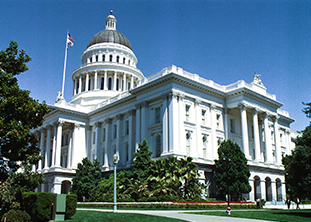CASE. . . Working for YOU!
CASE is a proactive voice for K-16 science teachers in the state. Through our leadership and staff, we are present at State Board of Education and Instructional Quality Commission meetings and at Legislative hearings, on an ongoing basis, to promote the needs of our members and science education.
Below is a short listing of our successes; some accomplished on our own, many in collaboration with the growing community of individuals and organizations who support access to a high-quality science education for all kids.
-
- In collaboration with the NGSS Collaborative, participated in the development of California NGSS TIME.
- Engaged in an advocacy campaign with a broad-base of support to secure a placeholder for science on the California School Dashboard.
- Develops and presents, along with other stakeholders NGSS Statewide Rollout 2-day Professional Development workshops (Level 1: 2014/2015; Level 2: 2015/2016; Level 3: 2016/2017; Level 4: 2017/2018).
- Collaborated with Nevada, Oregon, and Washington Science Teachers Association to publish a white paper to inform the development and selection of NGSS-aligned instructional materials. (2017)
- Successfully advocated for funding of the Instructional Quality Commission in the 2017/2018 state budget to insure CA NGSS Instructional Materials adoption continued on schedule.
- Successfully advocated for the inclusion of science in the state's future accountability system with the "Make Science Matter" campaign. (2016)
- Helped establish and serves in a leadership capacity in the first statewide NGSS implementation coalition with more than 80 stakeholder agencies and organizations (California Alliance for Next Generation Science Standards – CA4NGSS). Through the Alliance, collaboratively developed a series of CA-NGSS Communication Tools for use by educators and advocates. Visit http://ca4ngss.org to view and download the materials.
- Hosts an annual leadership development event to support and foster leadership in science education.
- Monitors and participates in state level meetings regarding the future of the statewide science assessment system and accountability system (ongoing). Successfully led the effort to have CDE reconsider their ESEA-required science assessment plan presented in Sept. 2015.
- Submitted reviews of and provided edits to draft versions of the new Science Curriculum Framework. (2014 - 2016).
- Contributed to the development of California’s NGSS Implementation plan adopted in November 2014.
- Successfully advocated for the state to take action to provide explicit clarification that the Next Generation Science Standards (NGSS) are a critical component of State Priority #2 and should be addressed in an LEA’s Local Control Accountability Plan (LCAP). (2014)
- Participated in the writing of the ELA/ELD Framework to make it more useful and applicable to science teachers implementing Common Core Literacy Standards for Science and Technical Subjects in their classrooms. (2013 – 2014).
- Relentlessly pursued for years and ultimately accomplished in the passage of legislation to revise the California science content standards (SB 300 – Hancock, 2011); ultimately leading to the adoption of the NGSS for California in September and November 2013.
- Through our advocacy efforts, prevented the slashing of the high school science graduation requirement from two years to one in 2012.
- Participated on the California NGSS State Review Team, the Science Expert Panel (SEP), and State Science Leadership Team. (2012– 2014)
-
- In 2004, the state issued the criteria that would be used to evaluate textbooks and other instructional materials, in preparation for the 2006 adoption of science materials. The original criteria limited the amount of hands-on activities that could be offered to no more than 25% of instructional time. CSTA was instrumental in getting the state to change the science criteria from no more than 25% to at least 25% hands-on instruction.
- CSTA closely followed the science adoption throughout 2005 and 2006, to try to ensure the integrity of the process. Our ongoing observations of Curriculum Commission meetings were invaluable in overturning or preventing several egregious irregularities in the process. (See our letter to the State Board of Education.)
- CSTA organized science teachers from around the state to review the submitted instructional materials for the 2006 adoption and conduct a "parallel" review to that of the state. Our teams attended the state deliberations meetings to oversee the process and comment if we observed deviation from stated protocols. Our attendance at the meetings proved to be important safeguards against some deviations that would have proved fatal to the adoption of some very good programs.
- In 2002, the State Board of Education, dismayed by the low test scores in Integrated Science, considered dropping Integrated Science from the state testing scheme. Had that occurred, it could have spelled the end of Integrated Science altogether, as few districts would consider offering integrated programs that would not be part of the STAR tests. CSTA offered to spearhead the revision of the Integrated Science test to a more useful format for districts, so that the state board would not eliminate it from the testing scheme.

